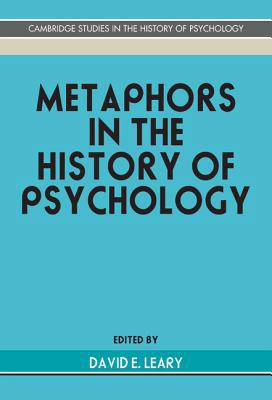
- Afhalen na 1 uur in een winkel met voorraad
- Gratis thuislevering in België vanaf € 30
- Ruim aanbod met 7 miljoen producten
- Afhalen na 1 uur in een winkel met voorraad
- Gratis thuislevering in België vanaf € 30
- Ruim aanbod met 7 miljoen producten
Zoeken
Metaphors in the History of Psychology
€ 201,95
+ 403 punten
Omschrijving
Metaphors in the History of Psychology describes and analyzes the ways in which psychological accounts of brain functioning, consciousness, cognition, emotion, motivation, learning, and behavior have been shaped--and are still being shaped--by the central metaphors used by contemporary psychologists and their predecessors. The contributors to this volume argue that psychologists and their predecessors have invariably turned to metaphor in order to articulate their descriptions, theories, and practical interventions with regard to psychological functioning. By specifying the major metaphors in the history of psychology, these contributors have offered a new "key" to understanding this critically important area of human knowledge. This theme has become an issue of central concern in a variety of disciplines ranging from linguistics and literary studies to cognitive science, psychology, and philosophy. Through the identification of these metaphors, the contributors to this volume have provided a remarkably useful guide to the history, current orientations, and future prospects of modern psychology.
Specificaties
Betrokkenen
- Uitgeverij:
Inhoud
- Aantal bladzijden:
- 400
- Taal:
- Engels
- Reeks:
Eigenschappen
- Productcode (EAN):
- 9780521371667
- Verschijningsdatum:
- 27/07/1990
- Uitvoering:
- Hardcover
- Formaat:
- Genaaid
- Afmetingen:
- 162 mm x 243 mm
- Gewicht:
- 680 g

Alleen bij Standaard Boekhandel
+ 403 punten op je klantenkaart van Standaard Boekhandel
Beoordelingen
We publiceren alleen reviews die voldoen aan de voorwaarden voor reviews. Bekijk onze voorwaarden voor reviews.










